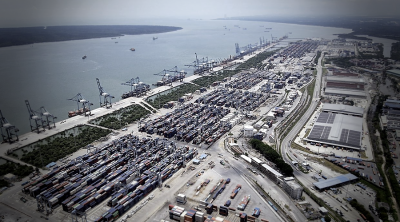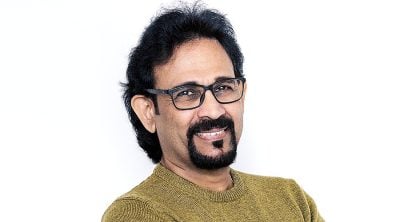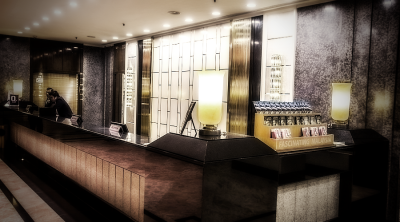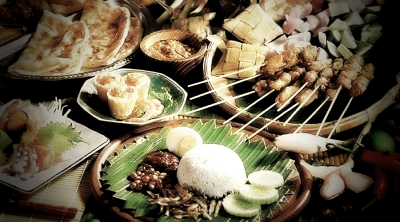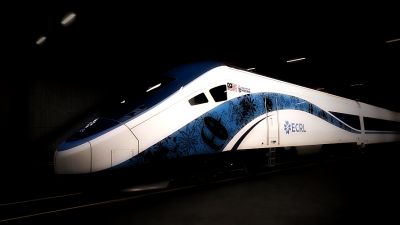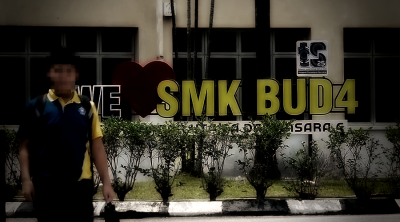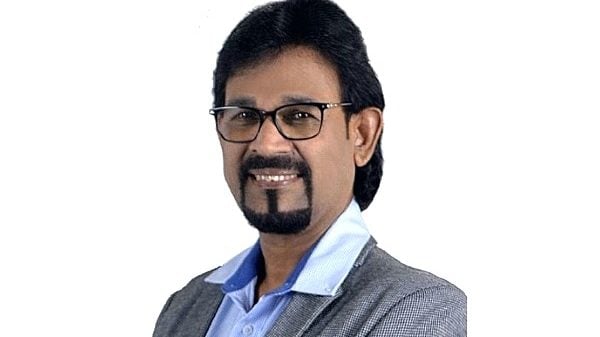
Our nation boasts of many valuable resources – natural resources including petroleum, metallic ores and tin, bauxite (aluminum), copper, and iron; and natural resources such as rubber, palm oil, pepper, cocoa, coffee, tea, various fruits and coconut.
Under the leadership of Tunku Abdul Rahman and Tun Hussein Onn, we were fully geared and earned the title of a nation as an exemplar of peace and harmony in a multiethnic, multifaith nation for the world as a shining star of Asia.
Malaysia was a country that had one unique phenomenon – Muhibbah, meaning a feeling of friendship, camaraderie, tolerance and understanding as a country.
We enjoyed much goodness, greatness and bigness as our nation flourished in all aspects of social togetherness.
Our multiple ethnicities, the 130 ethnic groups of Sabah and Sarawak, the Malays, Chinese, and Indians, sat together in eateries at the same table, with different types of food on their plates.
We welcomed housefuls of guests into one another’s homes during Hari Raya, Chinese New Year, Deepavali and Christmas.
There were fewer restrictions then, and the word halal was well abided by all with much respect to the way and type of food served for each ethnicity and their respective religion.
Fortunately, our brothers and sisters in Sabah and Sarawak still gather in eating places like in Old Malaya.
However, halal today has taken a different turn and has now divided the races. It has become the major reason why most Malays have refrained from visiting Chinese and Indian homes during the latter’s festive seasons.
“The table is a meeting place, a gathering ground, the source of sustenance and nourishment, festivity, safety and satisfaction,” said Laurie Colwin.
Sadly, this is no longer remembered or practiced.
We were excelling in the sports arena, with football, badminton, hockey and athletics. There were no racial quotas for these games or any overzealous officials.
Today, we are far behind from the glory of our days of yore. This is not because we lack talents, but because we are blinded or biased.
Talents are not recognized, as they are either seen from a racial card or they do not have enough support systems in place.
This has also killed the interest of the sport among the non-Malay parents who discourage their children from participating in the sports.
This brings to mind Haile Selassie’s famous lines: “We must become bigger than we have been; more courageous, greater in spirit, larger in outlook. We must become members of a new race, overcoming petty prejudice, owing our ultimate allegiance not to nations but to our fellow men within the human community.”
To date, some quarters are now arguing that the vernacular schools are the cause of our deteriorating national unity.
These school types have existed in our country since 1816 (Tamil schools), 1829 (Chinese schools) and 1858 (Malay schools) respectively. It is absurd that these schools have become an issue.
Once again, the overzealous and racist politicians are using the racial card to garner their political support, ignoring history and our precious national racial harmony.
We need to wake up and get out of this rut. There is too much negativity haunting our nation, including the overindulgence of religion.
Today, everything is viewed from a religious point of view. We care less about interracial harmony, not because of the people, but more selfish leaders who have taken the wrong path in managing our nation.
We can revisit our critical success factor called Muhibbah by ensuring the following is done and carried out diligently, to put our nation on its best footing
Education reform
Develop a unified national curriculum that includes the history, culture, and contributions of all ethnic groups in Malaysia, i.e. the Chinese, Indians, Sabahans, and Sarawakians.
History books must be written and scrutinized by professionals, true historians and academicians, not fakes.
We cannot allow simply anyone to write history books; we must preserve what is true, and the truth must be told to our future generations so that they will know and understand how our country came to be, and how it is standing today on its strong pillars of respect, unity and harmony.
Schools must promote cultural exchange programs, debates, camping trips, trekking activities and sports meets that foster understanding and appreciation among students of different backgrounds, be it national, vernacular, religious or even international schools, giving every student exposure to culture, language or even the lifestyle of the students.
Language inclusivity
Promote multilingualism and encourage the learning of multiple languages, including Malay, English, Chinese and Tamil, to enhance communication and understanding among different ethnic groups.
The public services must be made accessible in multiple languages to accommodate the linguistic diversity of the population, without forsaking Bahasa Malaysia.
This will create greater inclusiveness and reduce the burden on civil servants, especially in dealing with diverse Malaysians.
If more efforts are made in this area, we will not see the mishaps and misspellings that we read and laugh about daily, citing our teachers and university lecturers making silly mistakes using the English language.
Cultural festivals and events
The Ministry of Tourism, Arts and Culture must organize and support cultural festivals and events that celebrate the diversity of Malaysia’s ethnic groups.
The various festivals of the many communities must be acknowledged and celebrated even if a few people are celebrating them.
One example would be the royal couple, our Agong and Raja Permaisuri Agong, who had wished the Indian community the Indian New Year and Vaisakhi despite these festivals being celebrated by a minority.
The respective communities must be encouraged to organize and attend these festivals to create a shared cultural identity.
For instance, Hari Gawai could be celebrated in Kuala Lumpur or Putrajaya with a great event, even with a symbolic long house erected to attract every Malaysian to feel and experience this unique Malaysian lifestyle and culture.
Media representation
Our Malaysian media should not stereotype the communities. They should promote positive portrayals of all ethnic groups on the media, including television, films, print media and social media.
Encourage media outlets to feature stories that highlight the achievements and contributions of diverse communities.
Let’s pick a page from the late Tan Sri P. Ramlee or even our cartoonist Datuk Lat to show our diversity and plurality on canvas, paper and screen.
The Malaysian Media Council should have awards for “Best Muhibbah Story,” “Best Muhibbah Newspaper,” or “Outstanding Muhibbah Film” to create awareness or heighten interest within the media circle in our diversity.
‘Gotong royong’ or community engagement programs
Gotong-royong programs must be made compulsory for all local authorities, GLCs, universities and the private sector so that they will bring together people from different backgrounds for shared activities such as community service, sports, and arts.
Programs like “Feed the Need,” a community-run initiative in Kuala Lumpur, can be assisted by the Royal Malaysian Police Force or even the military forces.
Imagine how they can work with the urban poor and further understand the problems faced by vagrants and old people in the city center and be of greater assistance to them, too.
There should be an effort to tag every vagrant in the city and work out a special program for them, too, with the help of the police and military forces.
This effort will bring about greater fraternity and camaraderie between the poor and the police and military forces.
More can be done to develop and implement policies that address socioeconomic disparities among different ethnic groups.
Equal opportunities for education, employment, and housing for all citizens irrespective of their ethnic backgrounds would certainly help the government to be fair and not election-centric in truly helping the poor and needy.
The B40 group will benefit the most if these policies are executed transparently and sincerely.
Introduce NEP programs for all the B40 irrespective of their race. Create a special savings program in Amanah Saham Nasional; provide them with a 10% discount to purchase houses; provide full free education for all children, and offer them the first choice of employment with GLCs and the nearest factories.
National service program
We must seriously introduce the proposed national service program (NSP) that unites young people from diverse backgrounds to work on community projects and build camaraderie.
Besides putting them into lectures, identify kampungs, new villages, estates and low-cost flats which they can visit and do community services.
These services alongside the NSP would provide the young with a true picture of the poor and would make them empathize with them and bring them closer to all races.
The Ministry of Youth should look seriously into Muhibbah Month among the youths where young leaders of all races are chosen to serve and represent all races in Malaysia, including Sabah and Sarawak.
Leadership training
The Ministry of Manpower should provide leadership training programs that focus on building inclusive leadership skills and cultural sensitivity among government officials, educators, community leaders and even religious leaders.
Everyone must be equipped with physical and psychological components to bring back the feeling of Muhibbah among their wards and students.
National Institute of Public Administration (INTAN) must carry out structured programs for all KSU’s, pengarahs and all levels of civil servants focusing on muhibbah, thus invoking a greater sense of respect, understanding and greater embracing of the concept, though it is not new for any.
Sports and recreation
Encourage the participation of people from all ethnic groups in sports and recreational activities.
Support initiatives that promote unity through sports events and competitions.
Remove overzealous and racist sports officials from the sports circuit.
Mandate all sports to have a program of talent scouting from all types of schools, be it national schools, vernacular schools or religious schools, and also estates, kampungs and new villages without fail.
Evaluate the current squads and ensure we are preparing genuine sports enthusiasts rather than some granting favors to a VIP’s child or relative just because one of them is connected to someone in the sports association.
The appalling junior hockey team’s performance during Junior World Cup is a good example of national shame and a waste of sponsors’ money, as they have failed in their course to bring glory to the nation.
The appalling national football team is made up of seven naturalized citizens, doing total injustice, and yet seen as great.
Even in Badminton or athletics, we are hitting the raw nerves of all the sports enthusiasts.
National Muhibbah Day
Designate a day as National Muhibbah Day to celebrate Malaysia’s diversity and promote a sense of national identity.
Use the day to organize events, discussions, and activities that emphasize the importance of unity among the various ethnic groups.
Implementing a national unity program requires a sustained and collaborative effort from the government, civil society, educational institutions, and communities to create an inclusive harmonious society.
Public programs and exhibitions such as concerts, seminars and oratory and essay contests are held.
Award “Bapa Muhibbah” and “Ibu Muhibbah” to people who deserve, and declare them ambassadors or icons to promote unity across the country during their annual reign.
This will certainly make an impact on society and everyone’s views on the true meaning of muhibbah.
The National Unity Department must make extra effort to bring back these sorts of programs in sincerely wanting to see a difference
We once basked in the pride of being muhibbah. The entire world was in awe at our ability to live in peace and harmony despite our rakyat being of various ethnicities with totally different religions and beliefs.
Let’s put our differences aside and think of what’s right. We can be muhibbah once more. We only need to believe, trust and respect one another in building a nation of peace and harmony, not only for today but also for many generations to come.
Wishing every reader Gong Xi Fa Cai. May the Year of the Dragon bring greater goodies for every citizen of our nation.
Salam Muhibbah!
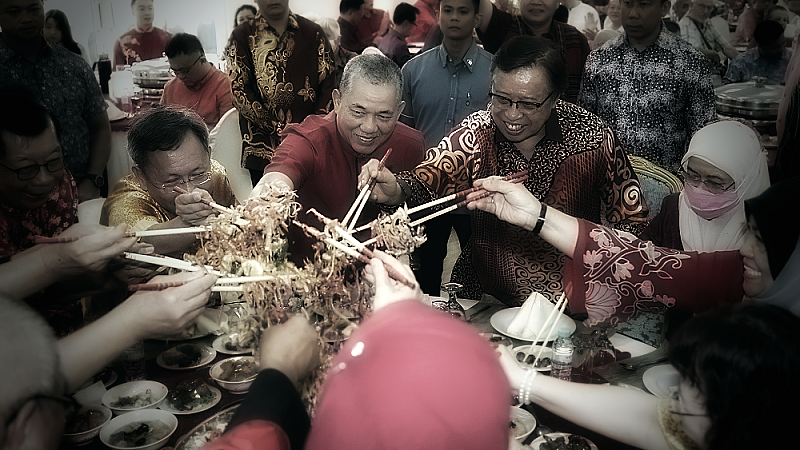
(Ravindran Raman Kutty is an active social worker.)
ADVERTISEMENT
ADVERTISEMENT






